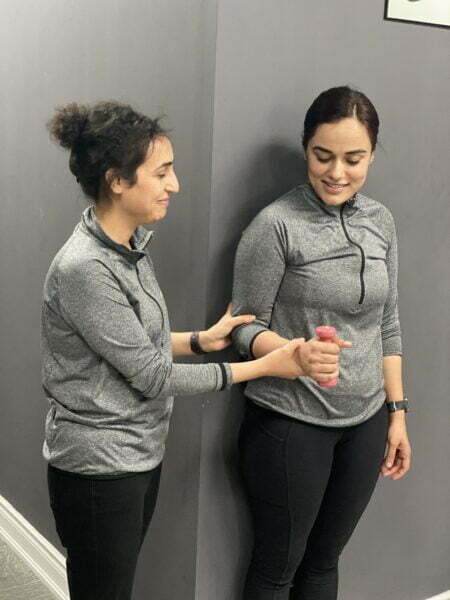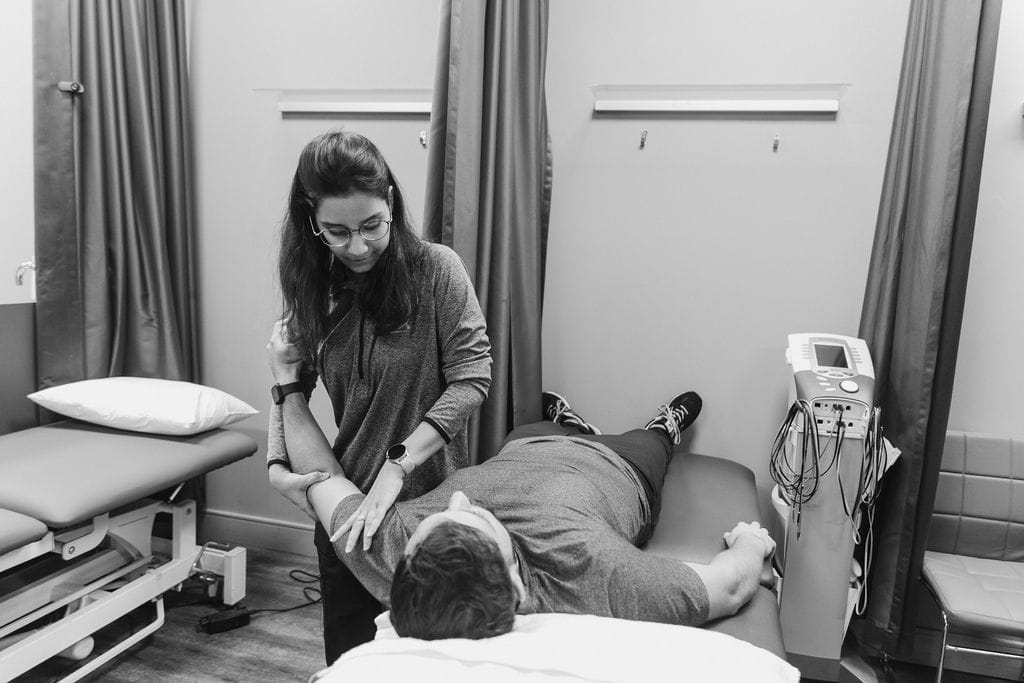Shoulder Prehabilitation (prehab) involves the process of implementing a physical, psychological, nutritional intervention before an individual goes into surgery. The goal behind prehab programs is to maximize an individual’s physical and psychological fitness/health before surgery in order to reduce pain, increase physical function and allow you to return to your normal activities sooner following surgery.
Although there is limited evidence regarding shoulder prehab programs, there is promising and growing evidence that suggests prehab programs for hip, knee, and spinal surgery may improve pain, function and reduce the total cost of healthcare spending in the post-operative period.
Also Read, Physiotherapy Clinics in Etobicoke

Types of Surgeries for Shoulder
- Reverse arthroplasty
- Total shoulder arthroplasty/replacement
- Rotator cuff repair
- SLAP repair
- Bicep tendon repair
- Tenotomy
What Prehab Programs look like:
Most prehab programs can be anywhere from 2-8 weeks leading up to surgery and could potentially involve:
1) Exercise training (2-3x/week)
- Strengthening and stabilization exercises for the rotator cuff and muscles supporting your shoulder blade
- Home exercise program tailored to your needs
- Exercise training 1 on 1 with a physical therapist
2) Education: information delivered regarding
- Shoulder anatomy and mechanics
- Pain science education
- The process of your operative procedure
- Patient-therapist expectations
- Post-operative protocol
- Detailed exercise program and technique
Also read, Best Physiotherapist near Mississauga
3) Nutritional support
- Consultation with a registered dietician
- Detailed nutrition programs to optimize physical and mental health
- Nutritional supplements as indicated
4) Psychological support
- Consultation with psychologist/ psychotherapist
- Anxiety and stress reduction
- Cognitive-behavioral therapy
- Relaxation techniques
- Coping strategies for surgery
Shoulder Prehab is a set of exercises and movements designed to strengthen and condition the shoulder joint and surrounding muscles, helping to prevent injury or improve recovery from a previous injury. Prehabilitation may include:
- Shoulder rotator cuff strengthening exercises such as internal and external rotation with light weights.
- Scapular stability exercises to improve posture and reduce stress on the shoulder joint.
- Stretching to improve flexibility and range of motion.
- Plyometric exercises to improve power and explosiveness.
- Core stability exercises to improve overall body control and stability.
Prehabilitation should be performed regularly, especially if you have a history of shoulder injuries or plan to participate in overhead activities such as weightlifting or throwing. By taking care of your shoulder before it becomes a problem, you can help prevent injury and improve your performance.
Click HERE to book an appointment with a physiotherapist at one of our eight locations.
- Physiotherapy Etobicoke – Triangle Physiotherapy Etobicoke
- Oakville Physiotherapy Clinic – Triangle Physiotherapy Oakville
- Physiotherapy North York – Triangle Physiotherapy North York
- Mississauga Physiotherapy Clinics – Triangle Physiotherapy Mississauga
- Downtown Physiotherapy Clinics – Triangle Physiotherapy King West
- Uptown Physiotherapy Clinics – Triangle Physiotherapy Lawrence Park
- Physiotherapy Clinic Downtown Toronto – Triangle Physiotherapy Queens Quay
- Physiotherapy Clinics Mississauga – Triangle Physiotherapy Erin Mills
Shoulder prehabilitation is essential for preventing injuries and optimizing recovery, especially for those undergoing surgery or managing shoulder pain. If you’re looking for professional physiotherapy services for shoulder prehabilitation, there are several clinics in physiotherapy Etobicoke, Oakville, North York, Toronto, Lawrence Park, Queens Quay, Erin Mills, Mississauga, and Liberty Village. These locations offer specialized care to help you strengthen your shoulders and maintain overall joint health.


